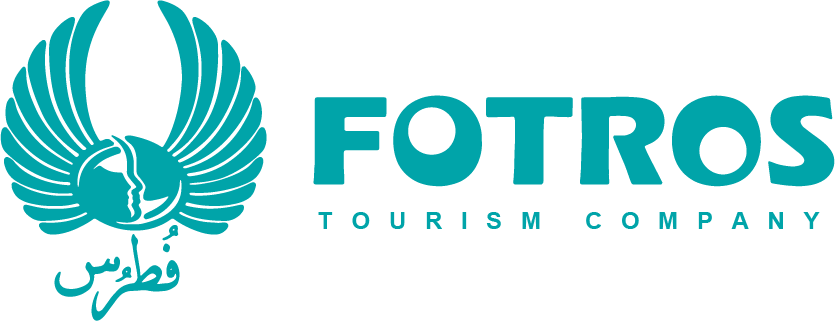
Medical Surgeries
Heart valve replacement


Heart valve replacement is a surgical procedure that involves removing a damaged or diseased heart valve and replacing it with a prosthetic valve. The heart has four valves - the aortic valve, mitral valve, tricuspid valve, and pulmonary valve - which play a crucial role in ensuring the unidirectional flow of blood through the heart chambers. When one or more of these valves become damaged or dysfunctional, it can impede the proper flow of blood and lead to various heart-related problems. Heart valve replacement is performed to address these issues.
There are two main types of heart valve replacements:
Mechanical Valve Replacement: Mechanical valves are made of durable materials like metal or carbon and are long-lasting. However, they require the patient to take blood-thinning medications (anticoagulants) for the rest of their life to prevent blood clots from forming on the valve. This type of valve is often recommended for younger patients because of its durability.


Bioprosthetic Valve Replacement: Bioprosthetic valves are typically made from animal tissue (e.g., porcine or bovine) or, less commonly, human donor tissue. They do not require lifelong blood-thinning medication. However, they may wear out over time and need to be replaced, especially in younger patients.


Heart valve replacement surgery is typically recommended for patients who have:
Severe valve stenosis: This occurs when the valve opening narrows, impeding blood flow.
Severe valve regurgitation: This happens when the valve doesn't close properly, causing blood to leak back into the previous heart chamber.
Congenital heart valve defects: Some individuals are born with abnormal heart valves that may need replacement.
Valvular heart disease: Conditions like endocarditis, rheumatic heart disease, or degenerative valve disease can lead to valve dysfunction.
Symptoms like shortness of breath, chest pain, fatigue, or heart palpitations due to valve problems.
The choice between mechanical and bioprosthetic valves depends on the patient's age, overall health, and lifestyle, as well as the specific valve involved. Mechanical valves are more durable but require lifelong anticoagulant therapy. Bioprosthetic valves do not require anticoagulants but may need to be replaced after some years.
Before and aftercare for heart valve replacement
Before and aftercare for heart valve replacement is crucial to ensure a successful recovery and the best possible outcome. Heart valve replacement is often necessary to treat conditions such as aortic stenosis, mitral regurgitation, or other valve diseases. Here are some general guidelines for before and aftercare:
Before Heart Valve Replacement Surgery:
Consultation and Evaluation: You will have several consultations with your healthcare team, including a cardiothoracic surgeon and an anesthesiologist, to discuss the procedure, your medical history, and any concerns or questions.
Medications: Your healthcare team will provide instructions about which medications to take and which to discontinue before surgery. This may include blood thinners or other drugs.
Lifestyle Adjustments: You may be advised to make certain lifestyle changes, such as quitting smoking, managing chronic conditions (e.g., diabetes or hypertension), and improving nutrition.
Informed Consent: You'll be asked to sign an informed consent form, acknowledging that you understand the risks and benefits of the surgery.


Preoperative Testing: You may undergo various tests, such as blood tests, electrocardiogram (ECG), echocardiography, and chest X-rays to assess your overall health and heart function.


After Heart Valve Replacement Surgery:
Hospital Stay: The length of your hospital stay will depend on the type of valve replacement surgery (mechanical or biological) and your overall health. Typically, patients stay in the hospital for 5-10 days.
Pain Management: You will be provided with pain management medications to ensure you are comfortable during recovery.
Monitoring: Continuous monitoring of vital signs, heart function, and the surgical site is essential. This includes checking for signs of infection or complications.
Mobility and Breathing: Physical therapists will help you with exercises to improve mobility and breathing. It's crucial to prevent complications like pneumonia and deep vein thrombosis.
Medications: You'll be prescribed medications, including blood thinners, antibiotics, and medications to manage blood pressure and heart rate.
Wound Care: The surgical incision must be kept clean and dry. Follow your surgeon's instructions for wound care.
Diet: Initially, you may start with a liquid diet and gradually transition to solid foods. Nutrition plays a crucial role in healing.
Lifestyle Adjustments: Continue any lifestyle changes recommended before surgery, such as smoking cessation and improved diet.
Follow-Up Appointments: Regular follow-up appointments are essential to monitor your progress and address any concerns.
Cardiac Rehabilitation: Participation in a cardiac rehabilitation program can help you regain strength, improve cardiovascular health, and enhance your overall quality of life.
Recovery time can vary depending on the type of surgery and your individual health. Always follow your healthcare team's instructions and communicate any symptoms or concerns. It's essential to have a strong support system in place, as recovery from heart valve replacement can be challenging, both physically and emotionally.
Why Iran:
Iran has gained a reputation for offering high-quality medical services, including heart valve replacement, to foreign patients. Several factors contribute to Iran's appeal as a destination for medical tourism, especially for heart valve replacement:
Skilled Medical Professionals: Iranian doctors and surgeons are often highly trained and experienced. Many of them have studied and trained in reputable medical institutions both within and outside of Iran.
Advanced Medical Facilities: Iran has modern hospitals and medical facilities equipped with state-of-the-art technology, making it possible to perform complex heart valve replacement surgeries with a high degree of precision.
Cost-Effective Treatment: Medical procedures in Iran, including heart valve replacement, tend to be more affordable than in many Western countries, making it an attractive option for patients seeking quality care without breaking the bank.
Short Waiting Times: In some countries, patients may face long waiting times for elective surgeries. Iran typically offers shorter waiting lists for medical procedures, allowing patients to get the care they need more quickly.
Medical Tourism Support: Many Iranian hospitals and medical centers have staff who can assist foreign patients with visa applications, transportation, accommodation, and language interpretation, making the medical tourism experience smoother.
Quality Healthcare Standards: Iran has regulatory bodies and standards in place to ensure the quality and safety of medical procedures, including heart valve replacement surgeries.
Cultural Attractions: Iran is a country with a rich history and culture, which can make it an interesting and attractive destination for patients who wish to combine their medical treatment with sightseeing and cultural experiences.
The price of Heart valve replacement in Iran depends on the hospital. the cost of this operation in Iran is about 7000$. Heart valve replacement is performed in the US at a price about 170000$
Our services include:
![]() our online services include: quotes and consultation
our online services include: quotes and consultation
![]() Planning the highest word-level medical trips and quality hospitals and medical centers according to the patient's request and budget.
Planning the highest word-level medical trips and quality hospitals and medical centers according to the patient's request and budget.
![]() Appointing treatments by the most skilled and experienced doctors.
Appointing treatments by the most skilled and experienced doctors.
![]() Airport pick-up/drop off, check-ups, accompanying translator, book hotel (for patients and their families)
Airport pick-up/drop off, check-ups, accompanying translator, book hotel (for patients and their families)
![]() Pre-hospitalization / post-hospitalization care services
Pre-hospitalization / post-hospitalization care services




All-Inclusive Medical Travel Packages
based on your budget, our team will assist you in choosing the best hotels, doctors, and medical centers. Our packages include:
 Airport Pickup Services
Airport Pickup Services Airport Dropoff services
Airport Dropoff services Hotel
Hotel Ticket
Ticket visa
visa translator
translator Transfer
Transfer SIM Card
SIM Card Sightseeing
Sightseeing
 why Iran
why Iran
Patients may choose to have abdominoplasty (commonly known as a tummy tuck) in Iran for a variety of reasons
Cost, Quality of Care, Privacy and Discretion, Combined Tourism, no Waiting Times
![]()
Fotros is an Iranian health tourism company with a professional team consisting of a support team and word-level doctors in medical and cosmetic surgeries like Neurosurgery, Rhinoplasty, Breast cosmetic surgeries, Liposuction, tummy tuck, etc.










 why Iran
why Iran